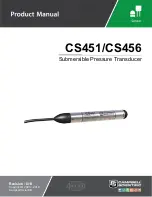
10/6/10
888-2629-200
C-1
WARNING: Disconnect primary power prior to servicing.
Maxiva ULX COFDM Series
Appendix C Grounding Considerations,
Surge & Lightning Protection
C.1 Surge and Lightning Protection
A lightning storm can cause transients in excess of 2kV to appear on power or field
signal lines. The duration of these transients varies from a few hundred nanoseconds to
a few microseconds. Power distribution system transient protectors can efficiently
protect the transmitter from transients of this magnitude. Transients are shunted to
ground through the protection devices and do not appear on the output. To protect the
transmitter from high transients on field cables, electronic surge protectors are
recommended.
All lightning protection is defensive in nature, that is, reacting to a lightning strike that
has already occurred; therefore, its effectiveness is limited. Nothing can provide total
immunity from damage in the case of a direct lightning strike. However, surge
protectors installed immediately after the main power disconnect switch in the power
distribution panel will afford some protection from electrical surges induced in the
power lines.
Surge protection devices are designed to operate and recover automatically. When
operated within specifications, a surge protector does not require testing, adjustment, or
replacement. All parts are permanently enclosed to provide maximum safety and
flexibility of installation.
To assure the safety of equipment and personnel, primary power line transformers must
be protected by lightning arrestors at the service entrance to the building. This will
reduce the possibility that excessive voltage and current due to lightning will seek some
low impedance path to ground such as the building metallic structure or an equipment
cabinet. The most effective type of power line lightning protection is the one in which a
spark gap is connected to each primary, secondary, and the case of the power line
transformer. Each spark gap is then independently connected to earth ground. In cases
where driven ground rods are used for building ground, the primary and secondary
neutrals must be separated by a spark gap. If two separate ground rods are used, the rods
must be at least 20 feet apart. All connections between lightning arrestors, line
connections, and ground must be made as short and straight as possible, with no sharp
bends.
C.2 System Grounding
Signals employed in transmitter control systems are on the order of a few microseconds
in duration, which translates to frequencies in the megahertz region. They are therefore
radio-frequency signals, and may be at levels less than 500 microvolts, making them
Summary of Contents for Maxiva ULX
Page 2: ...ii 888 2629 200 10 6 10 WARNING Disconnect primary power prior to servicing ...
Page 4: ...iv 888 2629 200 10 6 10 WARNING Disconnect primary power prior to servicing ...
Page 6: ...MRH 2 888 2629 200 10 6 10 WARNING Disconnect primary power prior to servicing ...
Page 8: ...viii 888 2629 200 10 6 10 WARNING Disconnect primary power prior to servicing ...
Page 9: ...10 6 10 888 2629 200 ix WARNING Disconnect primary power prior to servicing ...
Page 10: ...x 888 2629 200 10 6 10 WARNING Disconnect primary power prior to servicing ...
Page 12: ...xii 888 2629 200 10 6 10 WARNING Disconnect primary power prior to servicing ...
Page 14: ...xiv 888 2629 200 10 6 10 WARNING Disconnect primary power prior to servicing ...
Page 18: ...Table of Contents Continued 4 ...












































